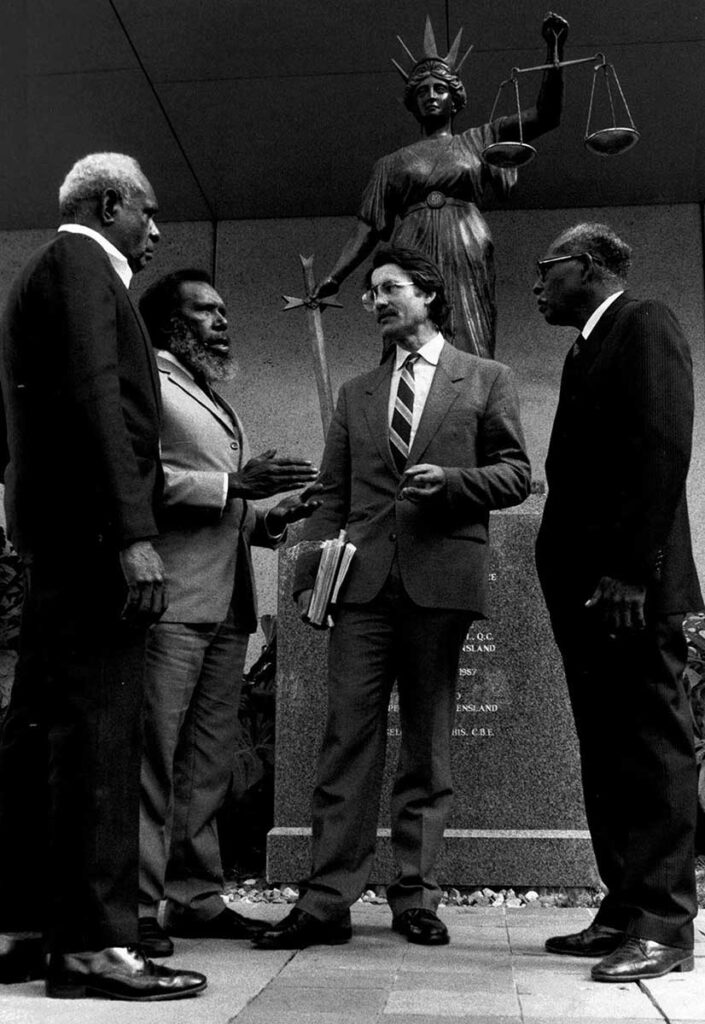1962
Commonwealth Electoral Act 1962
The Commonwealth Electoral Act 1962 granted Aboriginal and Torres Strait Islander people the option to enroll and vote in federal elections for the first time, though enrollment remained non-compulsory for them, unlike for other Australians. This Act marked a step toward electoral inclusion for Indigenous Australians.
1967
Constitution Alteration (Aboriginals) 1967
The Constitution Alteration (Aboriginals) 1967 referendum allowed the Commonwealth Parliament to make laws for Aboriginal people across Australia and enabled the full inclusion of Aboriginal people in the national census. This change marked a significant step toward legal and social recognition of Indigenous Australians.
1973
Aboriginal Affairs (Arrangements with the States) Act 1973
The Aboriginal Affairs (Arrangements with the States) Act 1973 enabled the Commonwealth to collaborate with state governments on policies and programs for Aboriginal welfare and development. This Act facilitated joint efforts to address Indigenous issues, supporting coordinated approaches in areas such as health, education, and housing.
1975
Racial Discrimination Act 1975
The Racial Discrimination Act 1975 (RDA) makes it illegal to discriminate against individuals based on race, color, descent, national or ethnic origin, or immigrant status. It protects against discrimination in areas such as employment, education, housing, services, and public access. The Act also outlaws racial hatred, establishing important protections against racial bias in public life.
1992

The Mabo decision 1992
The Mabo decision (1992) by the High Court of Australia recognized native title for the Meriam people of Mer (Murray Island), led by Eddie Mabo, affirming Indigenous land ownership rights. This landmark ruling declared terra nullius—the idea that Australia was “land belonging to no one”—a legal fiction and led to significant native title legislation, reshaping land rights for Indigenous Australians.
1993
Native Title Act 1993
The Native Title Act 1993 created a national system to recognize and protect Indigenous land rights, allowing native title to coexist with Australia’s land management. It was passed following the Mabo decision that overturned terra nullius. The Act was upheld as constitutional in Western Australia v Commonwealth (1995), confirming it as a law that uniquely protects Indigenous native title rights.
1997
Bringing Them Home Report
The Bringing Them Home Report (1997) was a landmark document detailing the experiences of the Stolen Generations—Indigenous children forcibly removed from their families as part of government policies. The report, resulting from a national inquiry, highlighted the profound trauma and lasting impacts of these policies on Indigenous communities, including loss of culture, identity, and family ties. It made numerous recommendations, including reparations, formal apologies, and ongoing support for affected families, spurring public awareness and advocacy for Indigenous rights and healing.
2023
The Voice Referendum
The Voice Referendum on October 14, 2023, proposed a constitutional amendment to create an Indigenous Voice to Parliament—an advisory body for Aboriginal and Torres Strait Islander issues. The proposal was rejected, with 60.1% voting ‘No’ and 39.9% voting ‘Yes’, leaving the Constitution unchanged and the advisory body unestablished.